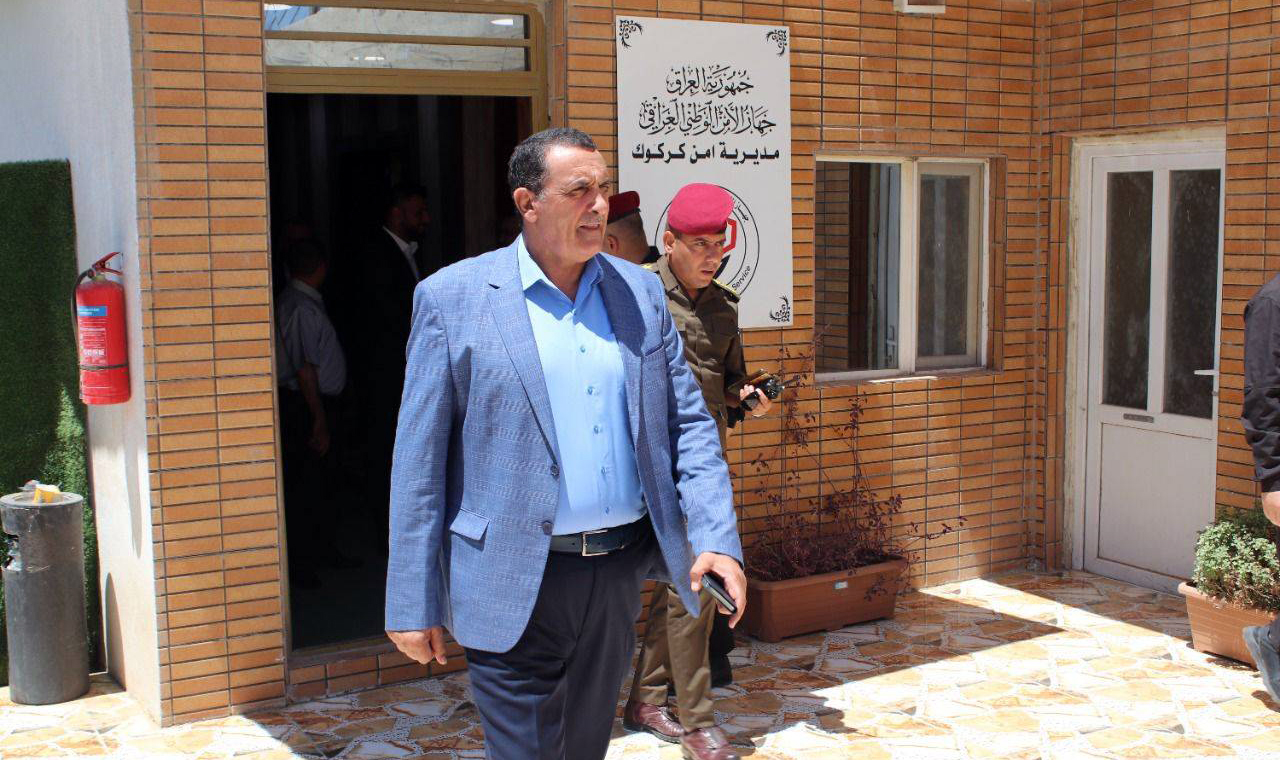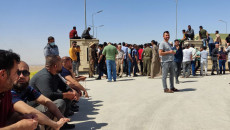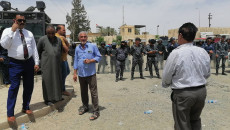Acting Kirkuk Governor Rakan Saeed Al-Jibouri says the province is facing a gasoline and power shortage due to insufficient supply.
Al-Jibouri said in an exclusive interview with KirkukNow that they have tried to rely on a realistic solution to fight the gasoline shortage, for which one of the reasons is due to variation in gasoline prices between Kirkuk supplied by Baghdad subsidized fuel and the adjacent provinces of Kurdistan Region of Iraq KRI, where most petrol stations are private, by appealing to the Iraqi ministry of oil to provide the oil-rich city with bigger quantities of gasoline.
The price of one liter of normal gasoline in the KRI private stations is 1200 Iraqi dinars IQD (USD0.8), and some motorists go to Kirkuk to get gasoline from public stations which costs only 450 IQD (USD0.3) per to the government coupon.
The governor of Kirkuk says one of the solutions was to increase the daily gasoline quota of the province by 30%.
The Kirkuk administration distributes more than 1.1 million liters of gasoline daily through 22 government petrol stations.
Al-Jibouri says successive Iraqi governments have not built gasoline refineries in Kirkuk, so they have become victims of public and private companies, as gasoline is sent to them from Qaywan, Kar and Beji refineries.
A story by KirkukNow last April showed that Kirkuk motorists face difficulties in renewing their gas coupons. The Oil Products Distribution Company in Kirkuk has received the task of distributing petrol coupons from food agents and is currently distributing it through four public stations and has tightened the procedures for distribution.
The gasoline coupons system has been in operation in Kirkuk governorate for nearly 10 years, in order to regulate the work of state petrol stations and prevent the smuggling of gasoline to other neighbor governorates of the IKR.
Subsidized fuel policy is followed since many years in Iraq which had a central state-run policy in all sectors up to 2003, when Saddam Hussein was ousted, per which the Iraqi government through the public sector was providing all services.
In Iraqi Kurdistan region, most of petrol stations are private where gasoline costs double compared to state-run petrol stations all over Iraq excluding the Kurdish region which receives small quantities from Baghdad and the rest is imported.
Kirkuk administration distributes, through 22 governmental gas stations, 40 liters of gasoline per week for private vehicles and 80 liters for taxi vehicles, through coupons at a price of 450 dinars per liter.
Iraq holds the second-largest oil reserves following Saudi Arabia but years of conflict and sanctions have left its refineries in dire straits, with the country now relying heavily on imports of oil products despite daily export of over three million barrels of crude oil per day.
Video: An interview with Rakan Al-Jibouri, Acting Governor of Kirkuk on June 20.
The acting governor of Kirkuk believes that the Ministry of Electricity is not fair in supplying power to Kirkuk “at least 11 hours the electricity is down, while other provinces are not so and other areas receive 22 hours of national power a day.”
The national power is on for about 15 hours. For the rest, the local administration relies on 733 private diesel generators to fill in the gap.
Private generators have protested more than once due to shortage of diesel which pushed prices up. The cost of electricity is expected to reach more than 16,000 IQD (10.30USD) per an ampere in blazing June.
Kirkuk province needs more than 1,000 megawatts of electricity daily to provide electricity to the locals, but receives less than half.
Following gulf war in 1991, the Iraqi state infrastructure was sharply hit by the economic embargo on Saddam Hussein regime due to damage of many transmission lines and substations leaving the basic services provided by the state inadequate.
Beside the national network of state-subsidized electricity supply all over Iraq, residential units and business projects rely on private generators for power supply to fill the gap of national power outage.
Al-Jibouri says at their request; The Council of Ministers has decided to charge only 250 dinars per liter of diesel for the private power generators according to the hours of operation.
The government has provided 20 liters of gas to each KVA at a price of 400 IQD per liter, which is enough to provide 110 hours of electricity, while the generators have provided more than 220 hours of electricity to citizens up to June 22nd, excluding next week.
Rakan Al-Jibouri says one of the solutions of his administration is to rely more on solar energy, and for this purpose three billion IQD have been allocated to schools and government institutions to install the solar system.
Located 238 kilometers north of Baghdad, Kirkuk is an ethnically mixed province for 1,7 million Kurds, Sunni and Shiite Arabs, and Turkmens. It has long been at the center of disputes between Baghdad and the Erbil.
Though the five oil wells of Kirkuk pump hundred thousand barrels of crude oil a day, the province misses proper utilities of power supply, drinking water, garbage collection, and basic healthcare and education system badly hurt by corruption and long years of war and instability.







